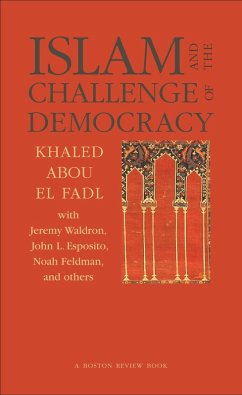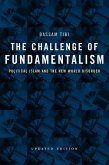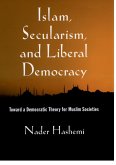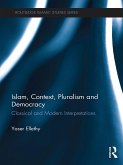The events of September 11 and the subsequent war on terrorism have provoked widespread discussion about the possibility of democracy in the Islamic world. Such topics as the meaning of jihad, the role of clerics as authoritative interpreters, and the place of human rights and toleration in Islam have become subjects of urgent public debate around the world. With few exceptions, however, this debate has proceeded in isolation from the vibrant traditions of argument within Islamic theology, philosophy, and law.
Islam and the Challenge of Democracy aims to correct this deficiency. The book engages the reader in a rich discourse on the challenges of democracy in contemporary Islam. The collection begins with a lead essay by Khaled Abou El Fadl, who argues that democracy, especially a constitutional democracy that protects basic individual rights, is the form of government best suited to promoting a set of social and political values central to Islam. Because Islam is about submission to God and about each individual's responsibility to serve as His agent on Earth, Abou El Fadl argues, there is no place for the subjugation to human authority demanded by authoritarian regimes. The lead essay is followed by eleven others from internationally respected specialists in democracy and religion. They address, challenge, and engage Abou El Fadl's work. The contributors include John Esposito, Muhammad Fadel, Noah Feldman, Nader Hashemi, Bernard Haykel, Muqtedar Khan, Saba Mahmood, David Novak, William Quandt, Kevin Reinhart, and Jeremy Waldron.
Islam and the Challenge of Democracy aims to correct this deficiency. The book engages the reader in a rich discourse on the challenges of democracy in contemporary Islam. The collection begins with a lead essay by Khaled Abou El Fadl, who argues that democracy, especially a constitutional democracy that protects basic individual rights, is the form of government best suited to promoting a set of social and political values central to Islam. Because Islam is about submission to God and about each individual's responsibility to serve as His agent on Earth, Abou El Fadl argues, there is no place for the subjugation to human authority demanded by authoritarian regimes. The lead essay is followed by eleven others from internationally respected specialists in democracy and religion. They address, challenge, and engage Abou El Fadl's work. The contributors include John Esposito, Muhammad Fadel, Noah Feldman, Nader Hashemi, Bernard Haykel, Muqtedar Khan, Saba Mahmood, David Novak, William Quandt, Kevin Reinhart, and Jeremy Waldron.









